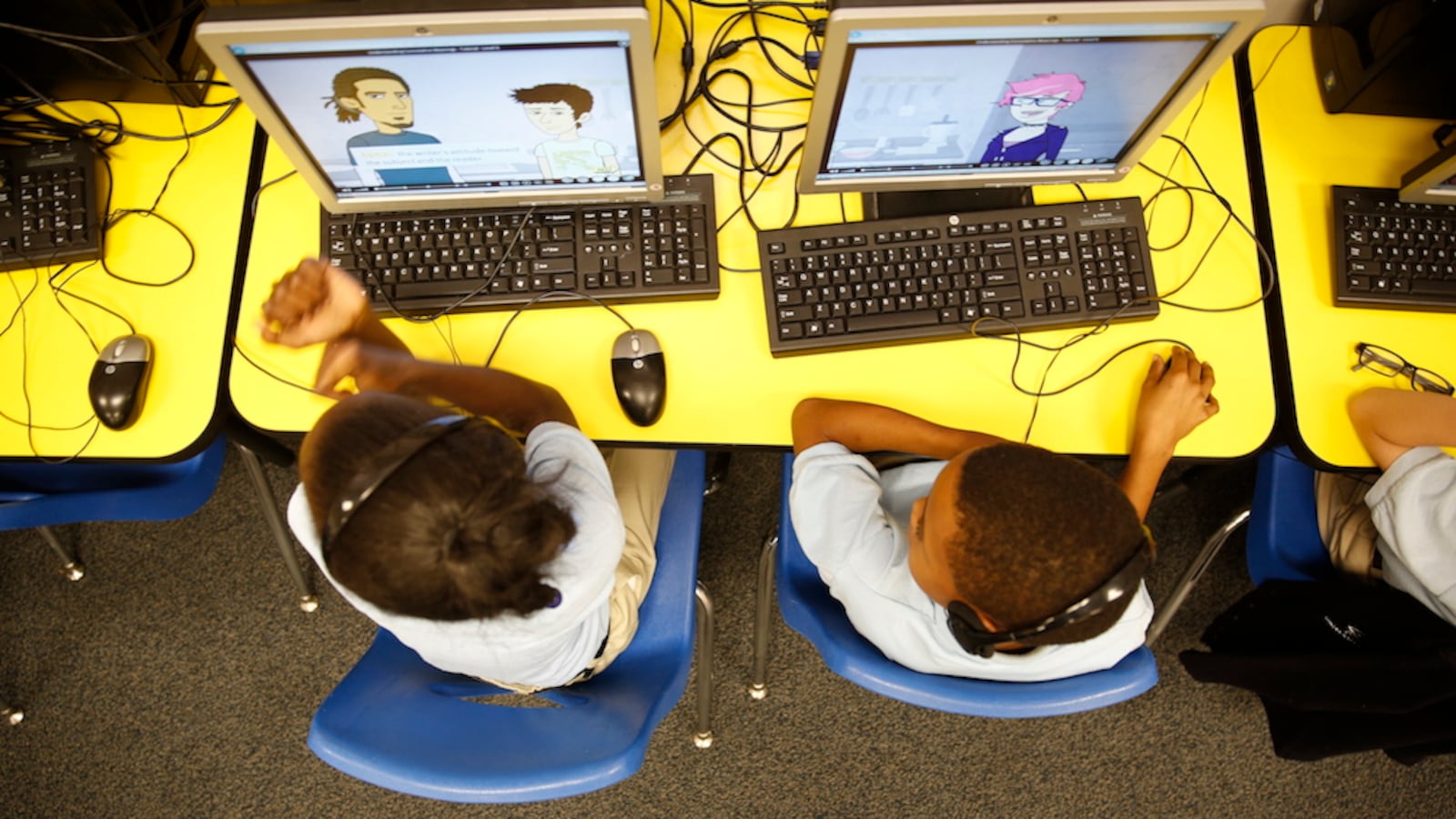A bill requiring school districts to uniformly share some local revenues with their charter schools passed the Senate Education Committee on a 6-3 vote Thursday.
A companion measure containing various other law changes sought by charters passed by the same margin. Sen. Mike Johnston, D-Denver, joined all five committee Republicans in supporting both bills.
The two measures, Senate Bill 16-187 and Senate Bill 16-188, have resurfaced district-charter tensions that have flared and subsided since the state’s charter law was passed in 1993.
The nearly five-hour hearing provided the most substantive education policy discussion of the 2016 session, which has been otherwise low-key for education.
More than 30 witnesses spoke on the bills, but all the testimony boiled down to two issues — equity in funding versus local control and flexibility.
“There is not an even playing field across Colorado right now,” said James Cryan, founder of the Rocky Mountain Prep charter.
The key provision of SB 16-188 would require districts to share proceeds from local tax overrides with charters on a per-student basis.
Nora Flood, president of the Colorado League of Charter Schools, said sharing of override revenues is uneven across districts. The league claims that more than 40,000 of the state’s 108,000 charter students are in schools that don’t receive equitable sharing of those revenues.
But Linda Van Matre, a member of the Academy 20 school board called the bill “an unnecessary intrusion into local government.”
And Carrie Warren-Gully, a Littleton board member, said the bill “interferes with carefully negotiated agreements at the local level.” She was representing the Colorado Association of School Boards, the Colorado Association of School Executives and the Colorado Education Association, the state’s largest teachers union.
The bills are expected to pass the Republican-majority Senate, but the prospects are more uncertain in the Democratic-controlled House. Charters aren’t a strictly partisan issue, and education reform groups backing the bills have ties with some Democratic lawmakers.
While groups such as Democrats for Education Reform, Colorado Succeeds and the Colorado Children’s Campaign are promoting the bill, school districts and associated interest groups are lobbying hard against them and are focusing their efforts in the House.
Charter school advocates long have complained about perceived inequities in
sharing of local district override revenues.
The dollars-and-cents impact of the sharing provision in SB 16-188 is hard to determine, given gaps in data about charter funding and the bill’s exceptions to the sharing requirement.
Some of the issues that make it difficult to gauge the bill’s potential impact:
Most districts aren’t affected: Mandatory sharing of overrides would affect only about three-dozen districts that have both charters and overrides. Those do include all of the state’s 10 largest districts and 17 of the 20 biggest districts, including the majority of the state’s students.
There’s already sharing: Based on responses from member schools in 33 districts, the charter league estimates 61 percent of override revenues already are shared with charters. The league puts the “unshared” gap at about $24 million, based on a survey of some member schools.
But sharing policies vary by district, with some districts sharing 100 percent and others much less.
Critics of the bill also note that districts don’t give traditional schools a set per-pupil amount from overrides.
The gap is partly a guess: State law allows districts to collect overrides for a variety of purposes. In addition to general overrides used for operating expenses, revenues can be earmarked for transportation, facilities, technology costs and full-day kindergarten. Senate Bill 16-188 says districts don’t need to share override revenues that charters aren’t otherwise eligible for. For instance, a charter high school wouldn’t receive money from a full-day kindergarten override.
Current Department of Education data doesn’t break out how much money districts collect from different types of overrides, so it isn’t easy to calculate the exact amount of money subject to sharing.
Better data is coming: A 2014 law required the Department of Education to compile a detailed report on sharing of override revenues. The department is in the final stages of compiling that study. But Associate Commissioner Leanne Emm said last week that the document won’t be ready until mid-May. Lawmakers have to adjourn no later than May 11.
Charter School Institute: Schools supervised by the institute receive no share of override revenues because they have no formal ties to local districts. The institute is a state agency with the power to authorize charters independently of districts.
Under SB 16-188, the state would pay those schools what they would receive if they were authorized by districts. Legislative staff estimate the annual cost of that at $12.2 million. But SB 16-188 specifies that this provision won’t be funded right away.
Other provisions sought by charters are contained in SB 16-187 and include:
- Formal notification from districts when vacant buildings and land are available.
- Elimination of the current requirement that charters be open for five years before they can apply for state Building Excellent Schools Today, or BEST, funds.
- Expanding use of funds charters currently receive for building needs so that they also can be used for maintenance.
- Permitting charters in the state’s highest rating category to submit improvement plans every other year rather than annually.
- Streamlining of audit requirements for charters with multiple campuses.
- Requiring districts to provide more detailed accounting of services they provide to charters.

